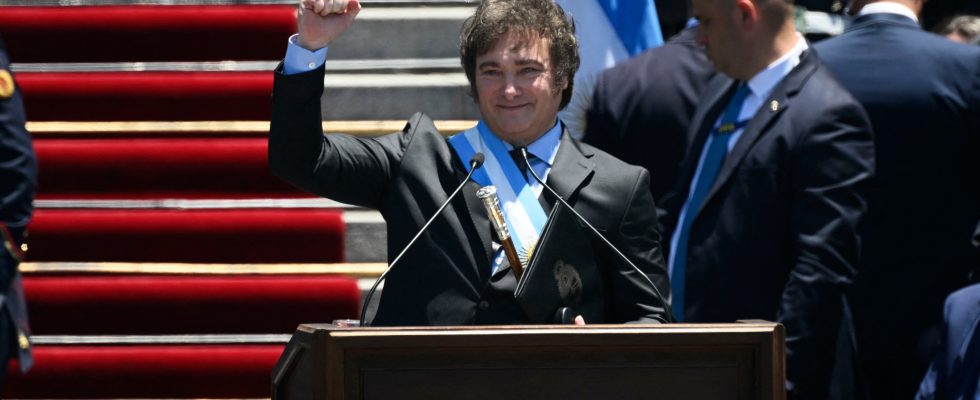This is a first temporary setback for the new Argentine government. On Wednesday January 3, the Argentine justice system provisionally rejected labor law reforms included in the deregulatory “mega-decree” of the new ultraliberal president Javier Milei.
The National Chamber of Labor, Argentina’s labor law body, has taken “a precautionary measure suspending the applicability” of the provisions of the “Labor” chapter of the decree of December 20, pending a legislative examination on the merits. It had been seized by the CGT, the largest trade union center in the country, which has multiplied large-scale demonstrations since Javier Milei took office.
This suspension is valid “until a final decision is rendered on the substantive question raised in the present procedure”, underline the judges in their decision, published by several media, including the official Telam agency. A suspension directly contested by the Argentine government, which has already announced that it would “appeal”.
More than 300 standards modified or repealed
This “Decree of Necessity and Emergency” (DNU), also nicknamed “mega-decree”, was announced on December 20 by the new President Javier Milei in order to establish the framework for massive deregulation of the economy, modifying or repealing more than 300 standards, notably affecting work, price and rent controls, the privatization of public companies, export and import regulations. Javier Milei had justified passing these measures by decree by the need “to begin the path towards the reconstruction of the country, return freedom and autonomy to individuals and begin to disarm the enormous quantity of regulations which have held back, hindered and prevented economic growth.
If this “DNU” has technically entered into force, it must still be subsequently approved by Parliament where Milei’s party, Freedom advances, is only the third political force. And, above all, in a still hypothetical timetable, while parliamentarians are already busy examining a bill of more than 600 articles aimed at continuing the massive deregulation of the economy.
A suspension on the form, not the substance
This decree is thus the subject of lively debates on its constitutional character, or not, and has been the subject of around ten legal appeals, including that of the CGT in summary proceedings, filed last week. The most controversial aspects of the proposed labor law reforms concern, for the unions, the extension of the trial period from 3 to 8 months, the reduction in compensation in the event of dismissal, limits to the right to strike, the possibility of dismissal in the event of blockage or occupation of the workplace.
In its judgment, the National Chamber of Labor therefore considered that it was not justified to pass these measures through regulatory and non-legislative channels. It notes in particular “that what constitutes so-called ’emergency’ reasons to avoid the due intervention of the legislative power on the substance of the legislation does not appear”, especially since certain standards “have a repressive or sanctioning nature “. She also underlines that “it is not explained how the proposed reforms, if they were applied immediately, outside the normal legislative process, could remedy the situation” and boost formal employment quickly, “a fortiori given that the decree he himself emphasizes that this employment has been stagnating for 12 years.
A suspension on form more than on substance, therefore. But legal recourse is one of the three axes of struggle – with the streets and Parliament – of the opposition, headwinds against Milei’s liberal revolution, and his mega-decree in particular. The CGT called a general strike and mobilization for January 24, the earliest strike against a government in 40 years of democracy, a month and a half after coming to power.
